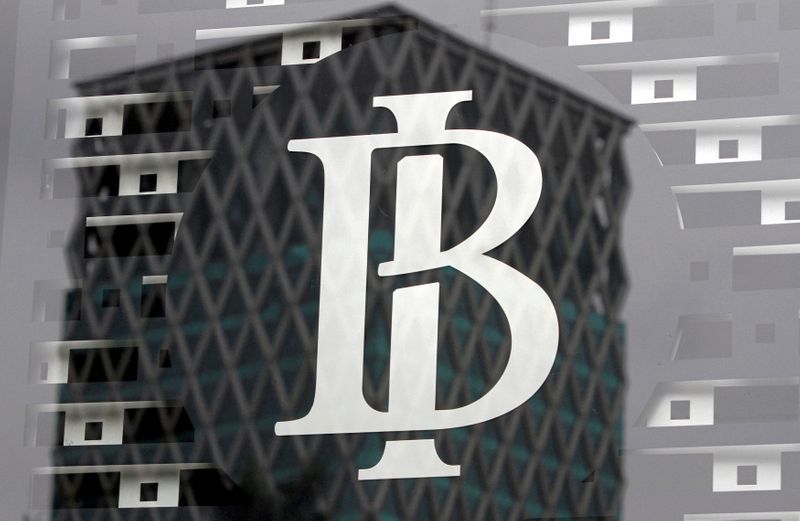By Gayatri Suroyo and Fransiska Nangoy
JAKARTA (Reuters) - Indonesia's central bank on Thursday cut its benchmark rate for the third time this year and signalled it may ease further, as Southeast Asia's largest economy struggles to avoid a recession amid the broadening fallout of the coronavirus pandemic.
Bank Indonesia (BI) cut the 7-day reverse repurchase rate
Thursday's cut was predicted by the majority of economists in a Reuters poll.
The move came a few days after the finance minister warned of recession risks, with gross domestic product expected to shrink by 3.1% in the second quarter - the first contraction since 1999 - and possibly contract again in the following three months.
BI trimmed its outlook for 2020 GDP growth to 0.9%-1.9% from 2.3% and pledged to keep all of BI's instruments "accommodative".
"With all of these factors: inflation low, the need to lift GDP growth, a small current account deficit, we say there is room for further rate cuts," Warjiyo told a virtual briefing.
"The timing would depend on global conditions and ensuring the stability of the rupiah is maintained," he said.
The rupiah
Warjiyo said the currency was undervalued and could strengthen for the remainder of the year.
In total, BI has trimmed its key rate by 75 bps so far this year to stimulate economic activity, on top of four reductions amounting to 100 bps in 2019.
Capital Economics' analyst Gareth Leather expects BI to continue with gradual easing over coming months due to "the very poor outlook for the economy".
Bahana Sekuritas' economist Satria Sambijantoro in Jakarta, who expects another 25 bps cut, said the pace of economic contraction in the second quarter may not be different to the double-digit falls seen in Singapore and Thailand.
"A response from the central bank, especially rate-cuts, would be necessary to maintain investors confidence that policymakers are ready to mitigate growth risks," he said.
Bank Danamon and ANZ also see a further 25-bp rate cut.
The government has budgeted nearly $50 billion to support the pandemic-hit economy, but had only doled out a small amount.
The country reported its biggest daily rise in coronavirus cases on Thursday, taking total infections to 42,762, with 2,339 deaths.

(This story has been refiled to clarify finmin made her remarks a few days ago and not a day ago)